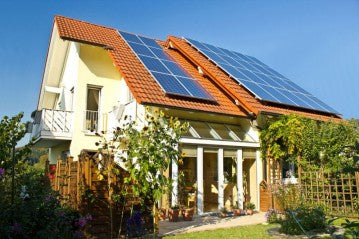
As the world continues to search for sustainable energy alternatives, solar power has emerged as a leading solution. Harnessing the power of the sun, solar energy offers a multitude of benefits that make it an increasingly popular choice for homeowners, businesses, and communities. In this blog post, we will explore seven compelling reasons why solar power is the optimal energy solution for a brighter and greener future.
1. Solar Power and Environmental Benefits
Solar power stands out as an environmentally friendly energy source. By utilizing photovoltaic (PV) panels, solar systems convert sunlight into clean electricity without producing harmful emissions or contributing to air pollution. The reduction in greenhouse gas emissions, including carbon dioxide, is one of the key advantages of solar power. By adopting solar energy, we can actively combat climate change and work towards a sustainable future.
2. Energy Independence: Going Off-the-Grid with Solar Electricity
One of the most significant advantages of solar power is the ability to achieve energy independence. Solar panels can generate electricity even in remote areas, making it possible for homeowners to go off-the-grid. By relying on solar energy, individuals can break free from the constraints of traditional energy sources and enjoy uninterrupted power supply. This level of energy self-sufficiency offers peace of mind and reduces dependence on external energy providers.
3. Utilizing Underutilized Land for Solar Power
Solar power presents a unique opportunity to repurpose underutilized land for the greater good. Barren deserts, abandoned industrial sites, and unused fields can be transformed into solar farms, effectively utilizing land that would otherwise go to waste. This not only maximizes the potential of these areas but also minimizes the need for additional land consumption. By tapping into these underutilized spaces, solar power contributes to sustainable land management and benefits local communities and economies.
4. Reducing Electricity Loss with Solar Power
Traditional power distribution systems often suffer from transmission and distribution losses, leading to a significant amount of wasted energy. Solar power, on the other hand, minimizes these losses by generating electricity directly at the point of consumption. With solar panels installed on rooftops or nearby areas, the distance for electricity transmission is significantly reduced, resulting in more efficient energy utilization. This efficiency translates into tangible benefits, such as lower electricity costs and reduced strain on existing infrastructure.
5. Enhancing Grid Security through Solar Power
Solar power plays a crucial role in enhancing the security and resilience of our energy grids. Traditional centralized grids are vulnerable to natural disasters, cyberattacks, and equipment failures. By adopting distributed solar systems, power generation becomes decentralized, reducing the risk of widespread outages. Each solar installation acts as a mini power plant, contributing to the overall energy supply and mitigating the impact of potential disruptions. This decentralized approach not only ensures grid stability but also improves energy security for communities.
6. Financial Benefits of Solar Power
Aside from its environmental and energy-related advantages, solar power offers compelling financial benefits. While the initial installation cost may seem daunting, long-term savings make solar power a wise investment. Over time, solar panels can significantly reduce or eliminate electricity bills, allowing homeowners to save money. Moreover, many countries and regions offer incentives, tax credits, and grants to promote solar installations, making the transition to solar energy even more financially appealing. In addition, solar power systems often have a positive return on investment, adding value to residential and commercial properties.
7. Promoting a Sustainable Future
Embracing solar power is not just about reaping immediate benefits; it is about paving the way for a sustainable future. By choosing solar energy, we contribute to reducing our carbon footprint, protecting the environment, and creating a more resilient energy infrastructure. Solar power serves as a shining example of how technological advancements and responsible choices can align to create a better world for future generations.
Conclusion
Solar power presents a multitude of reasons why it should be the energy solution of choice for individuals, communities, and businesses. From its positive environmental impact and energy independence to utilizing underutilized land and enhancing grid security, solar power is a versatile and reliable energy source. Furthermore, the financial benefits and the long-term savings it offers make solar power an appealing choice for all. Let us embrace solar power and become active contributors to a sustainable and greener future.
Ecgsolax has established itself as a leading manufacturer in the renewable energy industry, constantly striving for innovation in the pursuit of a cleaner and greener future. At Ecgsolax, we offer a wide range of solar products, such as deep cycle batteries, all in one inverters, solar charge controllers, etc. Join us in creating a truly sustainable future!
Embrace the power of the sun. Choose Ecgsolax today!

0 Kommentare